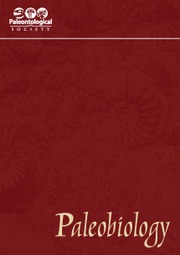No CrossRef data available.
Article contents
Beyond competition
Published online by Cambridge University Press: 08 February 2016
Extract
In a rare lapse of judgment, T. H. Huxley defined science as “organized common sense.” Huxley's motivation cannot be faulted, for he wished, by this definition, to stress the accessibility of science to any well-educated person. In the first paragraph of his most famous work on popular science (The Crayfish: An Introduction to the Study of Zoology, 1880), Huxley stated the fallacy that he wished to dispel with this definition:
Many persons seem to believe that what is termed Science is of a widely different nature from ordinary knowledge, and that the methods by which scientific truths are ascertained involve mental operations of a recondite and mysterious nature, comprehensible only by the initiated, and as distinct in their character as in their subject matter, from the processes by which we discriminate between fact and fancy in ordinary life.
- Type
- Matters of the Record
- Information
- Copyright
- Copyright © The Paleontological Society


